Discovery Bay, Jamaica – 14 Day Field Trip
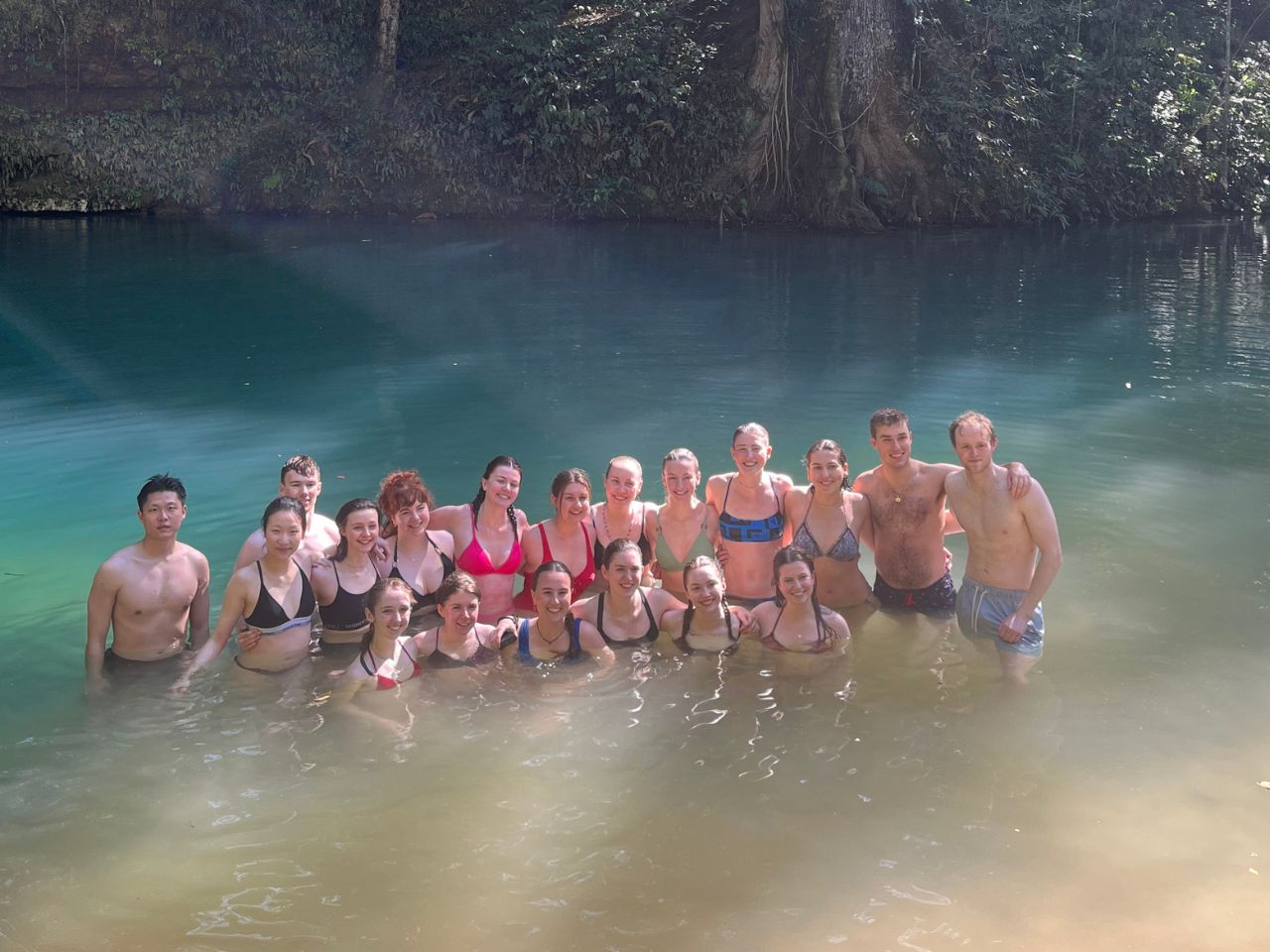
As a BSc Environmental Geoscience student, part of my third-year programme included a field trip to Jamaica. You might be wondering, why fly us 4,576 miles from Edinburgh for fieldwork? In this post, I aim to convince you why this experience was worth the distance.
By Sarah, BSc Environmental Geoscience
Skills Learnt
| Fieldwork Technique | Soft Skill |
| Algae and coral identification | Teamwork in challenging conditions |
| Tropical fish identification | Time-management |
| How to use Ocean Data View (ODV), data processing tool to show currents | Cultural immersion |
| How to deploy current drifter and CTD devices | |
| How to effectively use a spectrophotometer | |
| How to manually take flow measurements | |
| Improved skills in graph creation |
The focus of this trip was to study the impacts of human activities on land and sea on the health of a coral reef environment. Through a series of hydrographic, chemistry, and ecological studies, we compiled data to understand the story. Our entire year group took part in this field trip, accompanied by several members of the GeoSciences faculty.
The first leg of the journey started in Edinburgh and finished at London Heathrow. To complete this stage, we were provided with an overnight 8-hour coach. Fear not, this was more pleasant than I expected. I got around 4 hours of sleep, which was a surprise and a chance to chat to friends, and listen to music. In London, we then boarded a 12-hour flight to Montego Bay. After nearly 30 hours of travel, we finally arrived at Discovery Bay Marine Laboratory, Jamaica – our home for the next 14 days.
The first night, we familiarised ourselves with our surroundings by indulging in a group sunset swim in the crystal-clear Caribbean waters. Not quite the 4-degree Scottish waters I’m used to. The marine lab’s location was ideal, just two minutes away from the water, encouraging us to take full advantage of the unique environment.
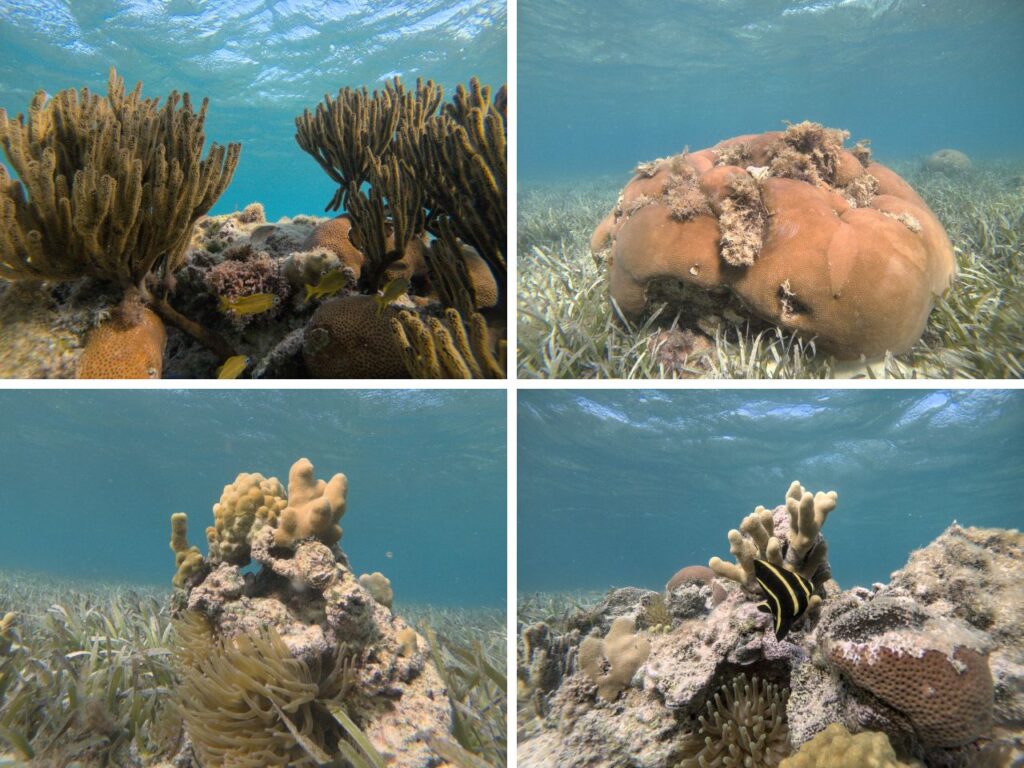
Our first full day consisted of an introduction to the various algae and coral types found in the bay, a crucial foundation for the data collection ahead. We also had a crash course in efficient snorkelling. It was the first time that I’ve seen tropical fish. I remember being mesmerised by a massive school of fish—it looked like an underwater mirror, with more fish than I had ever seen in one place.
The next three days were dedicated to data collection. On day one, my group’s rotation focused on ecology at the reef crest. The waves were choppy, testing our teamwork and making data collection difficult. My hands fell victim to the sun (the sun has no remorse!) but we managed to complete several types of ecology survey techniques.
Day two was our turn to collect hydrography data in the main bay area. In hindsight, some seasickness tablets would have been helpful. Despite the boat being battered by waves, we had a blast. We used sophisticated equipment to map the currents within the bay and were lucky enough to spot wild dolphins.
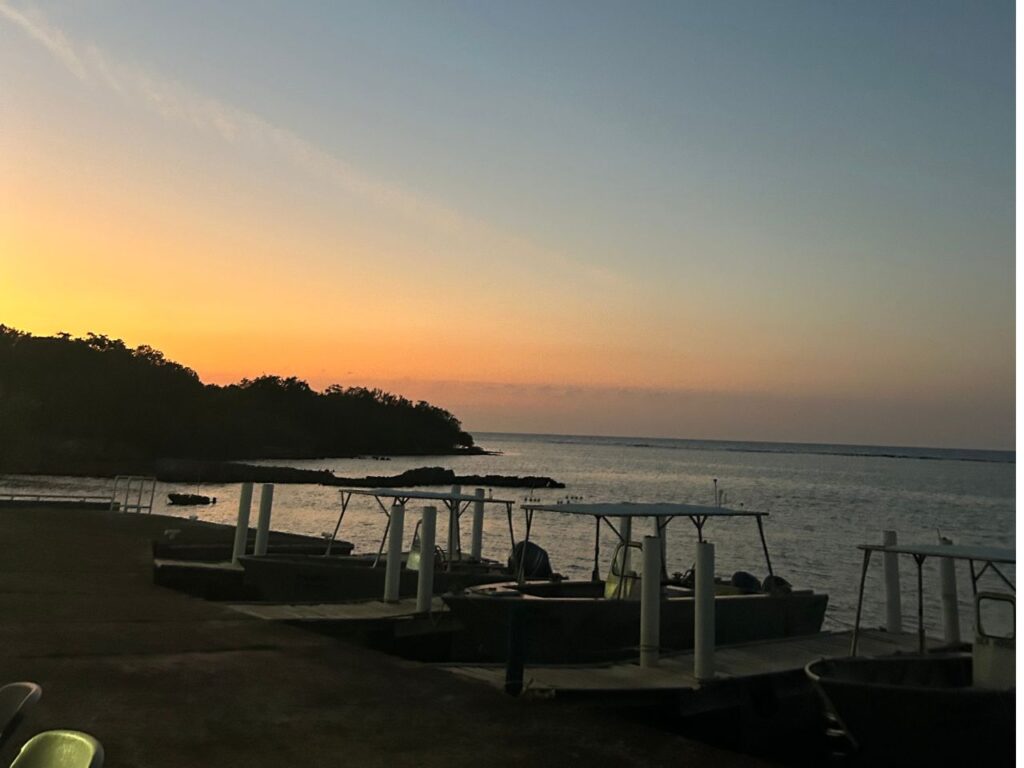
I volunteered to take a sample from an underwater cave, earning a few bruises and bragging rights in the process.
Our final rotation focused on chemistry data collection. We spent the morning snorkelling in the back reef area, taking water samples. I volunteered to take a sample from an underwater cave, earning a few bruises and bragging rights in the process. In the afternoon, we took the samples back to the onsite wet lab and spent hours using various chemical techniques to analyse the water’s properties, including nutrient levels, pH, and alkalinity.
The first weekend was dedicated to writing our ecology report. We spent the weekend typing away on our laptops, with hourly breaks for sunbathing and swimming. We even managed to fit in a morning trip to some waterfalls—a highlight of the trip. It was a far cry from the usual report-writing sessions in the main library back in Edinburgh.
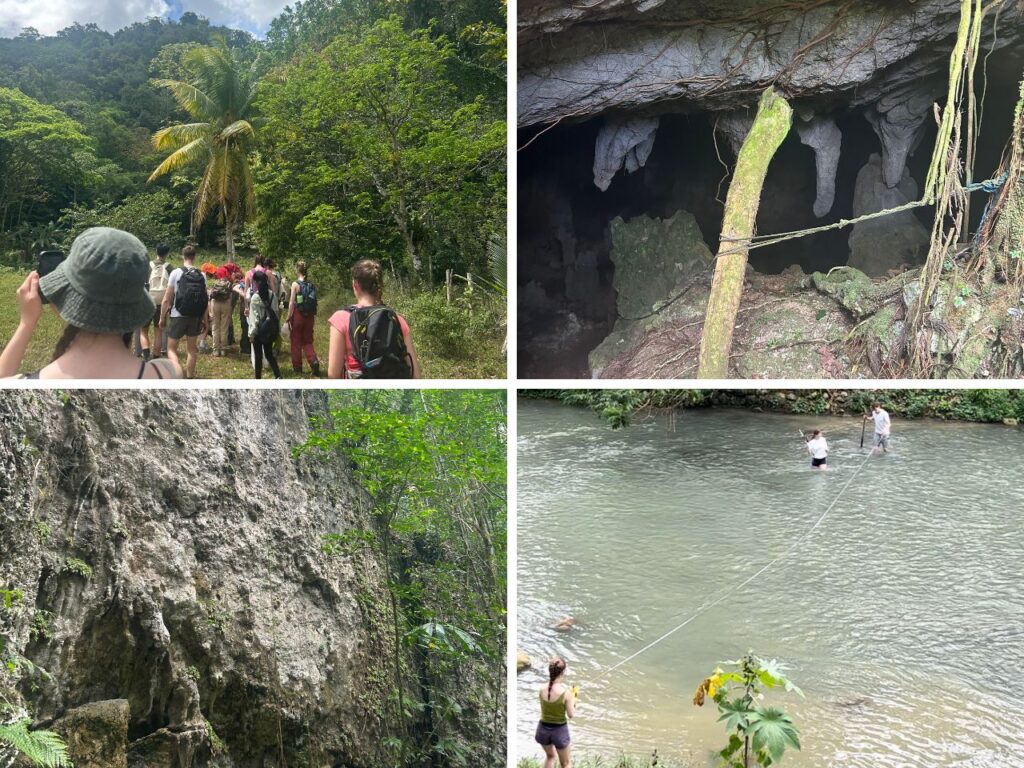
Week two shifted our focus to the terrestrial environment of Jamaica. On the first day, we explored a region called Cockpit Country, marvelling at karst landscapes and caves carved out by rock dissolution. We took several water samples along the way and ended the day with a refreshing dip in a gorgeous blue lagoon, taking turns swinging from the embankment into the cool waters below.
Days two and three were spent in different parts of the island, mainly collecting water samples and flow measurements from various rivers. After three days of fieldwork, we spent a day creating graphs and conducting further chemical analyses on our samples.
The final three full days in Jamaica were spent writing a series of three reports. These tested our ability to work under a time limit. Although this process was slightly painful, it showed me that I was capable of producing good-quality reports in a short timeframe.
I gained so much more knowledge about coral reef environments and their connection to human activities, as well as survey techniques I will use in future projects both at university and in my future career.
I gained so much more knowledge about coral reef environments and their connection to human activities, as well as survey techniques I will use in future projects both at university and in my future career. The experience has inspired me to base my dissertation on cold water corals, here in Scotland.
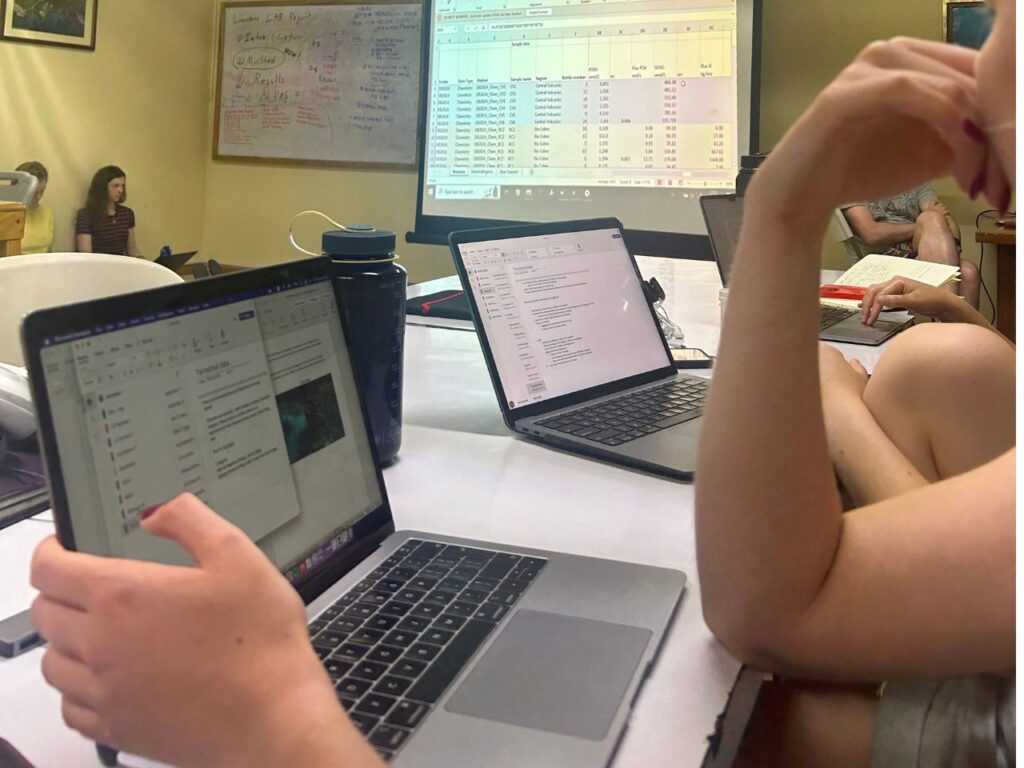
Jamaica was not only a great learning experience but also an amazing opportunity to get to know my course-mates and lecturers better. I made memories on this trip that will last a lifetime. Not everything we did always went to plan, but we were always able to laugh about it over dinner.
My knowledge would not be nearly as good if it weren’t for the University’s emphasis on fieldwork.
If you are considering studying BSc Environmental Geoscience , the University of Edinburgh is a great place to do it. These field trips are so important to allow students to consolidate learning from lectures in a real-life environment. My knowledge would not be nearly as good if it weren’t for the University’s emphasis on fieldwork.
In all, Jamaica was an incredible blend of intense data collection, report writing and breath-taking natural beauty—a hands-on experience that was both challenging and deeply rewarding.
Useful links
Learn more about BSc Environmental Geoscience
Read more Field Trip blogs



